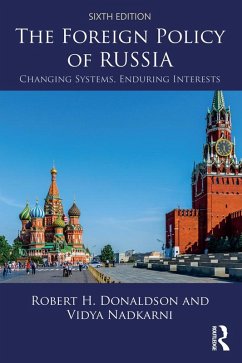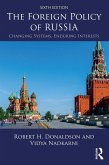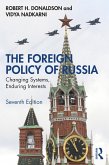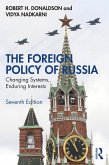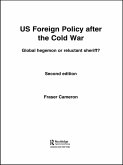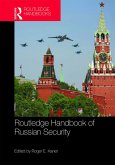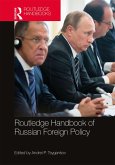Dieser Download kann aus rechtlichen Gründen nur mit Rechnungsadresse in A, B, BG, CY, CZ, D, DK, EW, E, FIN, F, GR, HR, H, IRL, I, LT, L, LR, M, NL, PL, P, R, S, SLO, SK ausgeliefert werden.
This textbook will provide undergraduate students with an excellent foundation in understanding general tendencies in Russia's external relationships over time as well as a coherent framework of analysis for exploring specific issues in greater depth through more specialized articles, book chapters, and monographs. In short, it is an ideal text for a survey course on Russian foreign policy or even for a more general course on international relations or comparative foreign policy that includes intensive attention to one or more of the great powers.
Allen C. Lynch, University of Virginia
The Foreign Policy of Russia is a sober and accessible analysis for both students and researchers. This a rare opportunity to get a full review of the origins, incentives, and challenges of Putin's controversial foreign policy.
Andrei Kolesnikov, Carnegie Moscow Center
This indispensable text offers students of politics and international relations, policy-makers, and the public a systematic, accessible, and even-handed discussion of Russian policy-making concerning relations with other states. Rooted by necessity in historical context, the book provides incisive, nuanced, and compelling analysis of changes and continuities in how Russian leaders perceive what is in their national interest and how they interpret and react to the actions of leaders elsewhere. Donaldson and Nadkarni offer a wise, timely contribution to debates about statecraft, soft power, pragmatism, East-West relations, and the role of cyber-crime.
Mary Buckley, Hughes Hall, University of Cambridge

